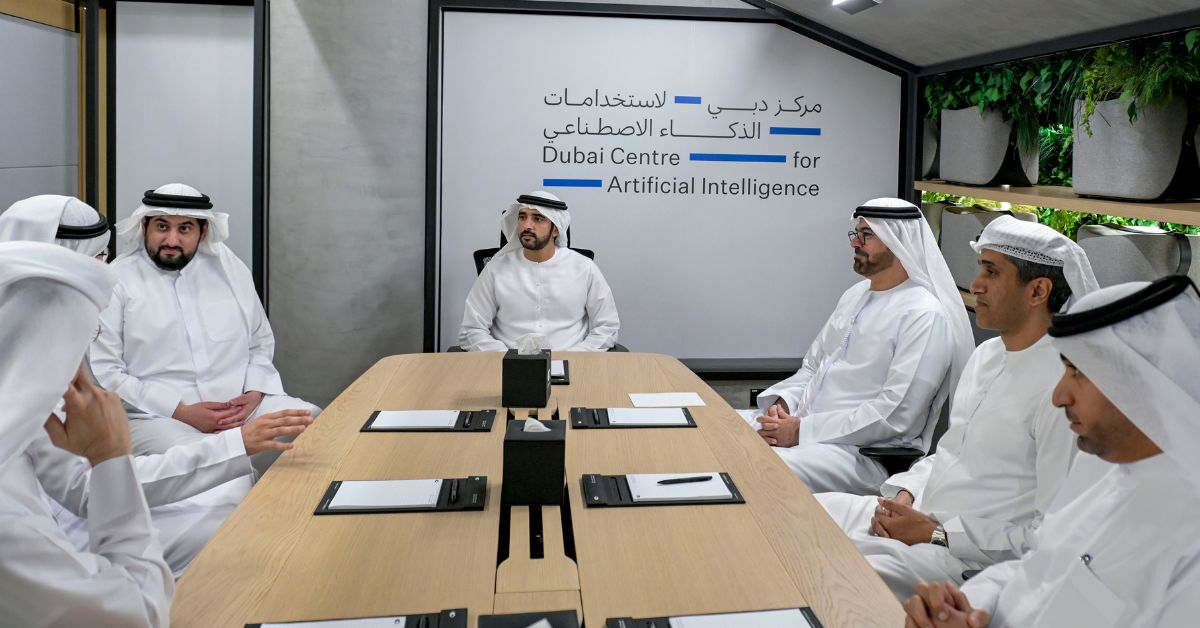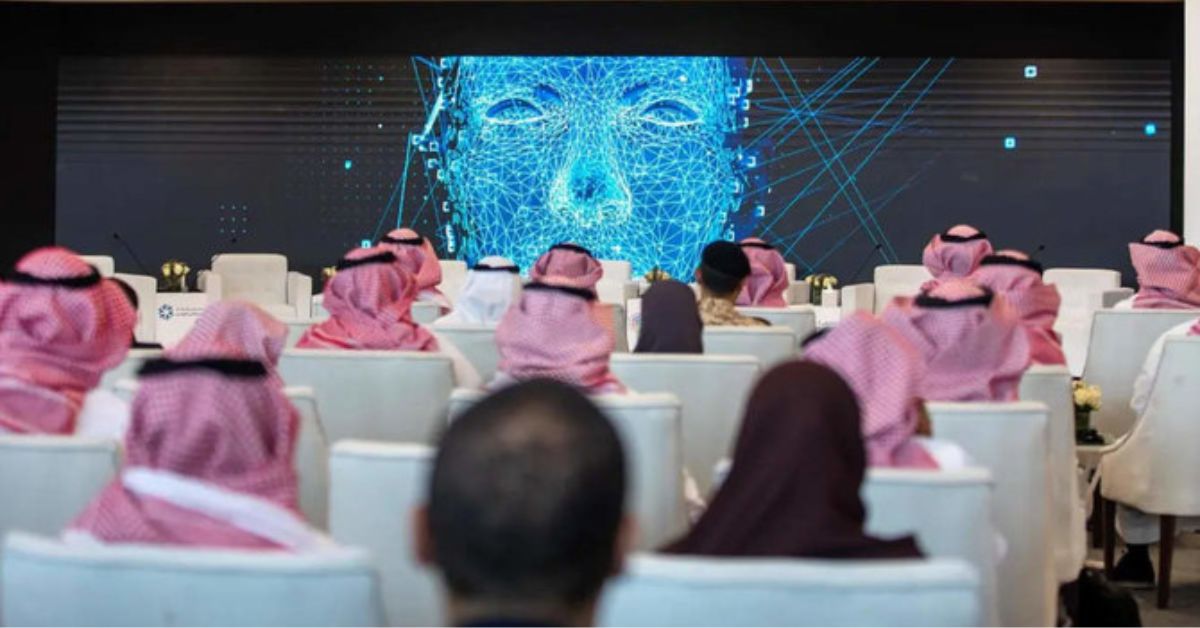DUBAI, UAE – As the world shifts toward cutting-edge technologies such as artificial intelligence (AI), the Gulf Cooperation Council (GCC) countries in the Middle East are making significant strides in the field, adapting rapidly to the technological revolution. The potential economic impact is transformational; hence, falling behind is not an option.
AI is substantially overhauling businesses, necessitating the embrace of advanced models that optimize workflows and enrich customer experiences. The strategic importance of AI has been echoed by corporate strategists. According to a comprehensive survey conducted by Gartner, Inc, 79 percent of corporate strategists regard AI, analytics, and automation as instrumental to their success in the coming years.
The survey, conducted from October 2022 to April 2023, collated views from 200 corporate strategy leaders across the globe. It found that while a majority use basic analytic tools, advanced technologies like machine learning and natural language processing are used by only 20 percent, despite their potential to partially or entirely automate almost half of strategic planning and execution activities.
According to a latest research McKinsey, AI holds immense promise for the Middle East’s Gulf Cooperation Council (GCC) nations, with the potential to yield up to $150 billion in value. This value represents over 9 percent of the collective GDP of the GCC countries. However, given the rapid advancements in AI technologies such as generative AI, this projection might soon be outpaced.
News In Numbers * AI could potentially deliver up to $150 billion in value for the GCC nations, says a McKinsey research. * AI could contribute more than 9% to the collective GDP of the GCC countries. * A comprehensive survey conducted by Gartner, Inc, found that 79% of corporate strategists view AI and related technologies as instrumental to their future success. * The same survey found that advanced technologies like machine learning and natural language processing are only utilized by 20% of companies. * PwC estimates that the Middle East will accumulate 2% of the total global AI benefits by 2030, equivalent to US$ 320 billion. * The International Data Corporation (IDC) projects the region's AI expenditure to reach US$ 3 billion in 2023, and to increase at a CAGR of 29.7%, reaching US$ 6.4 billion by 2026. * Banking, retail, and government sectors are expected to account for nearly 44% of the region's overall AI spending in 2023. * Dubai-based company Careem blocked 35,000 fraudulent users on its platform using AI. * Dubai Electricity and Water Authority’s AI-powered virtual assistant handled over 6.8 million queries since its launch in 2017. * Advanced AI applications in the retail sector could contribute up to 2.6% to global industry sales, and 1.8% in the manufacturing sector.
The Middle East, often seen as a land rich in history, culture, and natural resources, is poised to leverage the power of AI in the coming years. PWC estimates that the region will accumulate 2 percent of the total global AI benefits by 2030, equivalent to a staggering US$ 320 billion. The benefits will significantly bolster the GDPs of GCC countries, with Saudi Arabia and the UAE expected to see the most considerable impact.
Concurrently, the International Data Corporation (IDC) anticipates the region’s AI expenditure to reach US$ 3 billion in 2023, making up nearly 2 percent of global AI spending. The IDC also projects the region will have the highest growth rate globally, with AI spending estimated to increase at a CAGR of 29.7 percent, reaching US$ 6.4 billion by 2026.
This increase in AI expenditure is driven largely by the rapid adoption of cloud solutions and accelerated digital transformation across various industries. The sectors leading the AI revolution in the Middle East are banking, retail, and government.
According to the IDC, these sectors will account for nearly 44 percent of the region’s overall AI spending in 2023. However, it’s professional services and transportation that are predicted to experience the highest growth rates in AI spending between 2022 and 2026.

The AI movement in the region is more than just economic numbers. Real-world applications of AI technology are providing significant value in the Middle East.
Dubai-based company Careem, for instance, used AI to block 35,000 fraudulent users on its platform, demonstrating AI’s potential to enhance cybersecurity. The Dubai Electricity and Water Authority’s AI-powered virtual assistant handled over 6.8 million queries since its 2017 inception, showcasing how AI can improve customer service.
However, some industries face challenges in harnessing AI’s potential. For instance, companies in the construction industry struggle to collect the necessary data to train AI models or lack the capacity to unify their existing data.
For smaller enterprises, especially in financial services, the cost of implementing AI is a deterrent. In addition, regulatory hurdles pose significant challenges in some countries, with restrictions on data storage and lack of risk-related AI models.
Despite these hurdles, the potential of AI in the region remains largely untapped. AI’s application extends beyond marketing and sales; significant value remains unexplored in areas like supply chain management, manufacturing, risk management, and more.
Companies that harness the power of AI across their operations stand to gain considerably, underscoring the region’s unprecedented commitment to a future driven by AI.
The Middle East is thus poised not only to embrace AI but to become a leader in its application, showing the world that its capacity for innovation and progress is as vast as its rich history and cultural heritage.
While the Middle East, steeped in rich history and culture, may not be the first region to come to mind when considering global technological innovation, a closer look reveals a robustly evolving landscape. The region is capitalizing on the digital revolution, leveraging AI to reshape the face of its traditional sectors and promising an economically buoyant future.
As companies in the Middle East venture into AI, they are cognizant of the need for quality data to train AI models. This need has sparked a surge in the adoption of Internet of Things (IoT) technologies, particularly in industries such as retail, which are quick to harness consumer data for insights into pricing and promotions.
However, the construction sector faces a different reality. Here, small subcontracting firms dominate, making the initial cost of implementing AI prohibitive for many. Yet, this is only part of the story. Other sectors, like financial services, grapple with regulatory hurdles. Restrictions on data storage abroad and the absence of risk frameworks for AI are impeding AI’s deployment. These challenges, although considerable, are not insurmountable.
The banking, retail, and government sectors, despite their early adoption of AI, are yet to unlock its full potential. Only a fraction of their business operations harness AI. Current applications primarily revolve around marketing and sales, leaving significant untapped value in other functions.
In the retail sector, for instance, the potential benefits of AI in supply chain management and manufacturing could contribute up to 2.6 percent and 1.8 percent, respectively, to global industry sales. Meanwhile, financial services could considerably benefit from AI applications in risk management, like fraud detection and debt management.
These untapped opportunities emphasize the need for more widespread adoption of AI across sectors. Greater integration of AI into business operations promises substantial rewards, with every aspect of businesses – from supply chain management to customer service, standing to gain.
The AI revolution in the Middle East is in its nascent stages. Still, the region’s commitment to incorporating AI into its socioeconomic fabric is unambiguous. Its rapid strides in AI adoption and investment are a testament to its dedication to innovation and progress. With its potential barely scratched, the Middle East stands on the precipice of a digital renaissance.
In its quest for economic diversification and growth, the region is poised to redefine its identity, intertwining the narratives of its rich past with its technologically advanced future. The Middle East, thus, represents an intriguing juxtaposition of the traditional and the modern, exemplifying that history and progress can indeed coexist harmoniously.
The rapid pace of AI adoption and the transformative power of this technology set the stage for a promising future in the Middle East. As AI continues to evolve, it promises not only to reshape industries and economies but also to redefine what’s possible, propelling the region into a future where technology and tradition harmoniously coexist.








